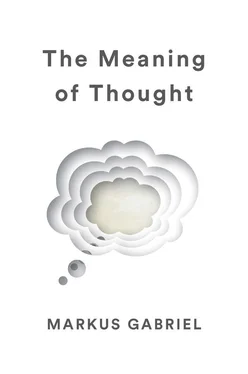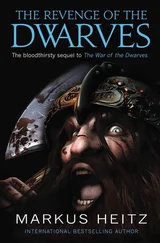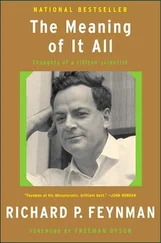Unfortunately, it is very difficult, impossible even, to determine who the human being is from a neutral standpoint. For it is necessarily a matter of self-determination to attempt to determine what the human actually is. This self-determination cannot simply consist in naming natural facts, because the human is a specifically minded animal, where human mindedness (or Geist, as we say in my neck of the woods) is the capacity to lead a life in the light of a representation of who the human being is. More concretely, this capacity finds expression whenever and wherever we develop stories and images of our lives and of the conditions under which we deem them a success. We thereby aim to be happy, but without being able to give anything like a universally valid account of what happiness is.
From a philosophical point of view, happinessdesignates nothing other than a successful life. There are no universally valid standards for this; neither is there a set of principles of which we might somehow draw up a definitive catalogue. At best, we can state the framework conditions that are valid for any successful pursuit of happiness – namely, human rights. Yet this does not mean that philosophy or any other discipline could come up with a recipe for happiness.
Today, however, the concept of the human being hangs in the balance. The digital age has already brought about a world in which what was previously the privilege of humans – that is, solving problems in an intelligent fashion – is now carried out, in a range of situations at least, with far greater speed and efficiency by the machines that we have built in order to make our life and survival less burdensome.
Ever since the initial flourishing of philosophical thought in Athens, where it developed simultaneously with the first democracy, one of its central tasks has been to point out confusions circulating in the marketplace of ideas. Today’s marketplace of ideas is the internet, the central medium of the digital age. The slogan of this book is: think first, digitalize second . This is just a version of Kant’s famous Enlightenment motto: ‘Have courage to use your own understanding!’, but tailored to our own times. This is an urgent necessity in an age in which global digital propaganda systems, with their continual bombardments of newsflashes and posts, hurl our thinking into turmoil and confusion.
The first key thesis of this bookstates that thought is a sense, just like our sense of hearing, touch and taste, our sense of balance, and everything else that we nowadays count as belonging to the human sensory system. This thesis runs counter to the now widespread idea that thinking is basically a matter of information processing and therefore a procedure which can essentially be re-created in silicon or some other non-living material. In short: computers ultimately think just as little as do the good old ring binders familiar from our analogue bureaucracy. Programs are simply systems of data management, which we can use to solve problems far quicker than we ever could without their help: booking flights, solving equations, translating foreign languages (more or less adequately), writing books or sending emails.
At the same time, I want to argue that our human intelligence is itself a case of artificial intelligence – indeed, the only real one we happen to be acquainted with. Human thought is not a natural process governed by the laws of nature, like the dynamics we find in the sun or in sandstorms. Unlike the moon’s orbiting of the Earth or the expansion of the solar system, we cannot understand our thinking if we abandon mentalistic vocabulary – i.e. language designed to articulate the meaning of thought – which typically includes words such as intelligence, thought, belief, hope, desire, intention and the rest.
The human being is the creature who is conscious of this very fact. And, accordingly, it orients its life around its ability to make targeted interventions into the conditions of its own life and survival. This is why humans elaborate sophisticated technologies in the form of systems for improving and simplifying their survival conditions. The human is thus networked with technology in its very self-understanding. In my view, the deep root of this interconnection lies in the various ways in which we are the producers of our own intelligence. The ways in which we think are formed by socio-economic framework conditions that human civilizations have been developing and transforming over millennia. This is how our artificial intelligence comes into being: by way of the self-determination of our human mindedness. 3
Our mindedness, our self-determination as human beings, was first set down in written form many millennia ago. Before the development of writing, our ancestors passed on various possibilities for self-determination in other media (such as oral traditions, artworks and rituals). These traditions continue to shape us, because they confront us with the question of who we want to be in the future.
Over the millennia, human life has revolved around the question of who or what the human being really is. One of the oldest known answers is that the human being is a rational animal. It is to Aristotle that we owe the corresponding designation of the human as zoon logon echon , the animal that – depending on translation and interpretation – possesses language, thought or reason.
Yet it is precisely this (supposedly) distinguishing characteristic and privilege of us human beings which the digital age brings into question. The Italian philosopher Luciano Floridi (b. 1964) goes so far as to see contemporary developments in AI research as a deep affront to our sense of our humanity, comparable to such seismic revolutions in our self-image as the heliocentric worldview, Darwin’s theory of evolution and Freud’s discovery of the unconscious. 4
Of course, it has long been the case that the computers we carry about with us pretty much all the time – such as smartphones, smart watches and tablets – can outsmart most human beings in simulated situations. Programs can play chess better than humans, beat us at Go and at good old Atari games. They are better travel agents, can search the entire internet at lightning speed, immediately report the temperature in every corner of the globe, and find patterns in gigantic data sets which would take humans an age even to notice. As if that weren’t enough, they also carry out mathematical proofs that even the very best mathematicians can understand only with considerable effort.
In the light of these advances, scientists, futurologists, philosophers and politicians like to engage in speculation about how long it will be before the infosphere, as Floridi calls our digital environment, attains a kind of planetary consciousness and liberates itself from its dependence on us humans. Some fear that a digital worstcase scenario, known as the singularity or superintelligence, will occur in the not too distant future. This position has found a prominent salesman in Raymond Kurzweil (b. 1948), himself inheriting ideas from pioneers of AI research such as Marvin Minsky (1927–2016). Even such famous personalities as Bill Gates (b. 1955) and Stephen Hawking (1942–2018) have warned of a fast approaching intelligence explosion, in which intelligent machines will take control and potentially exterminate humanity.
Others think all of this is only so much humbug, believing that the infosphere is no more intelligent than our shoes. One of the pioneers of the philosophy of artificial intelligence, the American philosopher John Rogers Searle (b. 1932), has long been arguing that the computers manufactured by humans cannot really think and that the likelihood of their ever attaining consciousness has not increased a bit over the last decades, that it continues to lie at exactly 0 per cent.
Читать дальше










